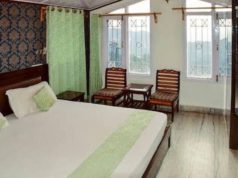Shimla – The Himachal Pradesh government is set to implement significant changes in the regulation of homestays with the upcoming Homestay Rules-2024. These changes aim to address the growing concerns over the misuse of the Homestay Scheme and ensure fair competition with the hotel industry. The Cabinet Sub-Committee, formed to draft these new rules, will present its recommendations at the next Cabinet meeting on August 8, 2024.
One of the major proposals is to impose the same tax levied on hotels on homestays operating in urban areas. This move is intended to curb the unfair competition posed by homestays that function like hotels without paying equivalent taxes. The committee believes that many homestays are undermining the work of legitimate hotel businesses that comply with all tax obligations. The original intent of the Homestay Scheme was to promote self-employment in rural areas, offering tourists a chance to experience traditional local hospitality. However, some operators are exploiting the scheme, effectively running hotel-like businesses without paying the equivalent taxes.
Additionally, the new rules propose revoking the licenses of homestays operating on leased properties. Currently, around 60 percent of the 4,146 registered homestays in the state are on lease. The existing Homestay Rules-2008 mandate that the licensee must operate the homestay and reside in the same building. The committee also recommends shutting down over 1,000 unregistered homestays and bed and breakfast (B&B) units operating illegally. The proposed changes include reducing the license period from five years to two years, closing homestays run by individuals from outside the state, and increasing registration and renewal fees.
To boost government revenue, a cess on homestays based on the facilities offered is also under consideration. Additionally, there is a proposal to bring B&B units under the jurisdiction of the Tourism Department. These impending decisions have sparked a mix of concern and anticipation among stakeholders. Homestay operators, particularly those running legitimate businesses, fear the additional financial burden and stricter regulations. On the other hand, hotel owners welcome the move, hoping it will level the playing field and curb unfair competition.












